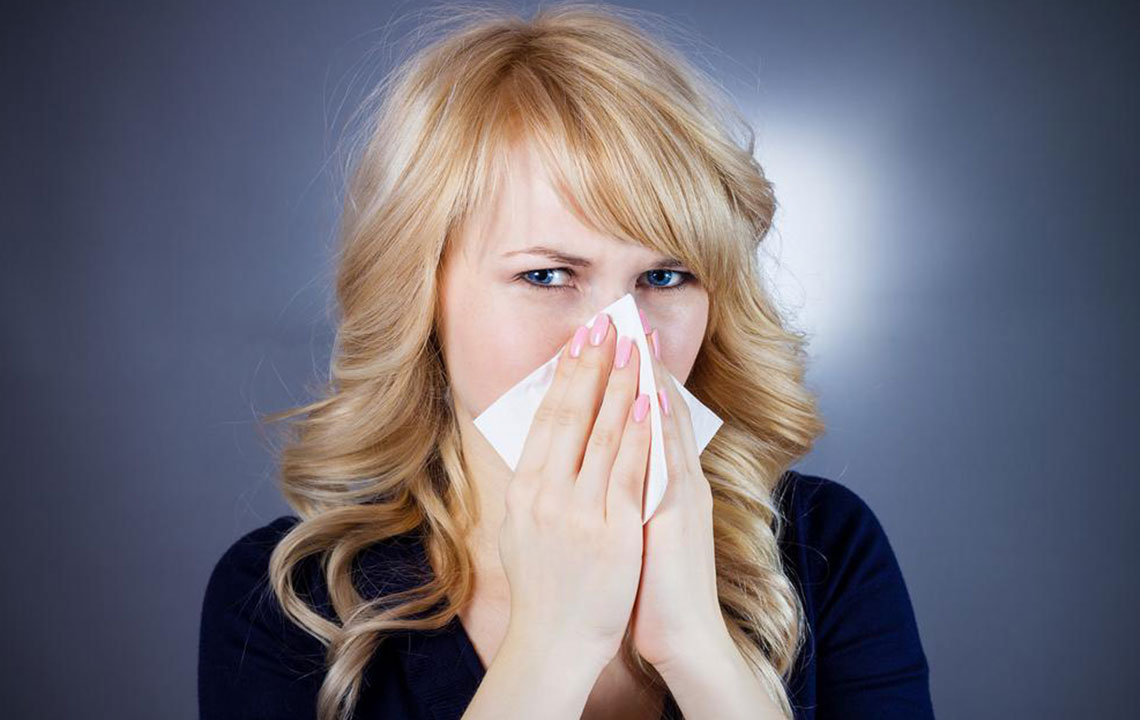Symptoms, Causes, and Treatment Options for Sinus
Sinusitis is a condition in which the tissue lining the sinuses gets inflamed or swollen. Usually, healthy sinuses fill up with air; however, when they get blocked by fluids, this causes germs to grow in the area. This, in turn, causes a severe infection. There are two types of sinusitis—chronic and acute sinusitis.

Symptoms
Usually, the symptoms of sinusitis in adults follow after a cold. It does not get better even after 5 to 7 days, and sometimes, it even gets worse. The symptoms of chronic sinusitis are similar to acute sinusitis. They are just a little milder and can last as long as 11 to 12 weeks, and sometimes even more than that. The list of symptoms of sinusitis has been mentioned here.
- A headache and fever
- A cough that gets worse at night
- Fatigue and the feeling of being sick
- Bad breath
- Inability to smell things
- Pain behind the eyes
- Toothache
- Face becoming tender than usual
- Post nasal drip and sore throat
The symptoms of sinusitis in children vary from the infection in adults. These are the possible symptoms in children.
- Severe cold and respiratory problems that get worse as time passes by
- High fever with dark nasal discharge that lasts for more than three days
- Cold that has been there for more than ten days and does not improve
Common sinus causes
In the skull, the sinuses are filled with air. This indicates that they are healthy. Sinuses are located behind the nasal bones, eyes, cheeks, and forehead. If they are healthy, they have no bacteria or germs in them. Whenever we have a cold, usually the mucus can dry out by itself, and the air can easily flow through the sinuses. When the openings get blocked, bacteria gets filled up, and other germs can grow easily, there leading to sinusitis. Few other conditions are considered as common sinus causes. These have been mentioned here.
- A nasal spectrum and nasal bone that’s deviated from its original position. This causes a blockage in the opening of the sinus. This is one of the common sinus causes.
- There are small hairs in the sinus known as cilia. These small hairs are responsible for properly moving the mucus out, and when they fail to do so, they become of the prominent sinus causes. This can happen probably due to medical conditions.
- Frequent cold and allergies can cause too much mucus to build up and block the sinus openings.
Acute sinusitis
Acute sinusitis usually begins with a respiratory tract infection, mostly caused by viruses. Viruses that cause them are generally coronaviruses, rhinoviruses, and influenza viruses. If bacteria cause the infection, then the possible causative agents are Streptococcus pneumoniae or Moraxella catarrhalis. However, there are a lot of vaccines that are available to decrease the infections dramatically. Bacterial sinusitis is more persistent than viral sinusitis. Viral sinusitis lasts for around 7 to 10 days.
Chronic sinusitis
We already know that this type of sinusitis lasts more than three months. This type arises as a result of different kinds of disease. The main reason behind chronic sinusitis is yet to be found. There are a lot of other environmental factors like dust, pollution, or bacterial infections that can be the reason behind it. The fungus that is reactive, infective, or allergic might lead to chronic sinusitis. Both anaerobic and aerobic bacteria combined are found to be causative of chronic sinusitis.
Factors that increase the risk of developing sinusitis:
- Hay fever or allergic Rhinitis
- Smoking cigarettes in large amounts, frequently
- Going to the daycare often
- Medical conditions that prevent the cilia from working properly
- Sudden change in the altitude
- Cystic fibrosis and a weak immune system caused by HIV or chemotherapy
There a lot of other factors that cause sinusitis. Here is a list of secondary sinus causes we should be looking out for:
- Smoke and other pollutants
- Not drinking enough fluids
- Not treating allergies quickly
- Not getting proper vaccines
- Not washing your hands often
- Not eating plenty of fruits and vegetables
- Not eating food rich in antioxidants
Treatment for sinus
Self-care treatment
You can try these to reduce the symptoms associated with sinusitis.
- Apply a warm and moist cloth on your face several times in a day
- Drink lots of water and fluids to make the mucus thin
- Inhale steam for at least two to four times a day
- Use a humidifier and spray with nasal saline several times in a day
- You can also use a saline squeeze bottle to flush the sinuses completely
Moreover, note that when you’re using nasal decongestants, they might seem to help you at first. However, they can worsen the condition with prolonged use. Avoid using nasal decongestants and instead, follow these steps to soothe the pain and pressure.
- Don’t go in an airplane when you feel nasal congestion.
- Avoid traveling to places that have extreme temperatures
- Do not bend forward with your head down
Usually, sinusitis is treatable at home and can also be cured by medical treatments.


